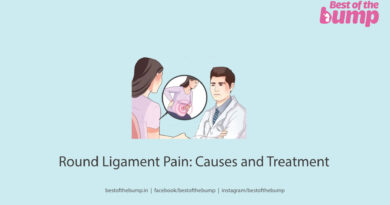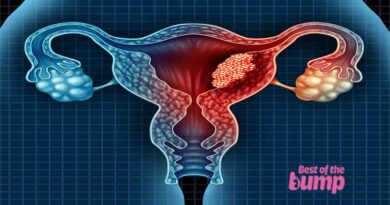Stuffy Nose and Nose Bleeds in Pregnancy
Nose bleeds in pregnancy, nosebleeds and nasal congestion are often experienced by pregnant women, primarily during the second trimester. These occurrences are closely linked to hormonal changes, including elevated levels of progesterone and estrogen. These hormonal fluctuations lead to dilated blood vessels and increased pressure on the delicate veins in the nose. Additionally, dry and swollen mucous membranes in the nose can further exacerbate the likelihood of nosebleeds, especially in dry environments or during the winter season. In this article, we will delve into the causes, remedies, and precautions associated with nosebleeds during pregnancy to help expectant mothers manage this common discomfort effectively.
Causes of Nosebleeds in Pregnancy

Nose bleeds in pregnancy, the body undergoes significant hormonal changes, which can contribute to nosebleeds. Understanding the underlying causes can help expectant mothers mitigate their occurrence and seek appropriate remedies. The primary causes include
Hormonal Changes
Nose bleeds in pregnancy, increased levels of progesterone and estrogen cause blood vessels to dilate, resulting in increased pressure on the veins in the nose.
Swollen Mucous Membranes
Nose bleeds in pregnancy, hormonal fluctuations can lead to swollen nasal passages and dry mucous membranes, making the veins more susceptible to breaking and causing nosebleeds.
Dry Environments
Nose bleeds in pregnancy, central heating during the winter months can dry out the air in homes, further exacerbating the dryness of nasal tissues and increasing the likelihood of nosebleeds.
Remedies for Nasal Congestion and Nosebleeds in Pregnancy
Nose bleeds in pregnancy, managing nasal congestion and nosebleeds during pregnancy can help alleviate discomfort and minimize the frequency of occurrences. Here are some remedies that expectant mothers can try
Steam Inhalation
Nose bleeds in pregnancy, inhaling steam from a bowl of hot water or using a humidifier can help moisturize the nasal passages and relieve congestion.
Saltwater Nasal Spray

Using a saline nasal spray can help keep the nasal passages moist and reduce dryness, thus minimizing the risk of nosebleeds.
Safe Vapour Rub
Consult with your pharmacist for a safe vapour rub specifically designed for use during pregnancy. These rubs can provide relief from nasal congestion.
Paracetamol
Taking paracetamol under the guidance of a healthcare provider can help alleviate a runny or blocked nose during pregnancy.
Hydration
Drinking plenty of fluids helps prevent dehydration of the mucous membranes, reducing the likelihood of nosebleeds.
Precautions and Self-Care Tips
Taking preventive measures and practicing self-care can significantly reduce the occurrence of nosebleeds during pregnancy. Here are some precautions to consider
Nasal Moisturization
Apply a small amount of petroleum jelly inside the nose to prevent dryness and protect the delicate tissues. However, ensure it is used sparingly and consult with your healthcare provider if you have any concerns.
Humidifier or Vaporizer
Use a humidifier or vaporizer indoors to add moisture to the air, particularly in dry environments or during the winter season.
Gentle Nose Care
Avoid picking your nose, as it can irritate the nasal passages and increase the risk of nosebleeds. If you need to blow your nose, do so gently.
Avoid Dry Environments
Stay away from overly dry or dusty environments as much as possible, as they can exacerbate nasal dryness and increase the chances of nosebleeds.
Consult with Healthcare Provider
Always consult with your healthcare provider or pharmacist before taking any decongestant medications, as some may carry risks for the baby’s development.
When to Seek Medical Assistance

While nosebleeds during pregnancy are generally harmless, certain situations may require medical attention. If the following conditions occur, it is crucial to seek prompt medical assistance:
Persistent Bleeding
If nosebleeds persist even after applying pressure on the nose for 20 minutes, medical intervention may be necessary to address the issue effectively.
Heavy Bleeding
If you experience heavy bleeding from the back of your nose that flows into your mouth, it is essential to seek immediate medical attention.
Unusual Symptoms
If you notice any other concerning symptoms alongside nosebleeds, such as severe headaches or dizziness, it is advisable to consult with your healthcare provider promptly.
Nose bleeds in pregnancy, nasal congestion and nosebleeds during pregnancy can be bothersome but are generally normal occurrences due to hormonal changes and increased blood flow to the nasal area. By understanding the causes, implementing remedies such as steam inhalation and saline nasal sprays, and taking necessary precautions, expectant mothers can effectively manage and minimize nosebleeds. However, it is crucial to consult with healthcare providers for personalized advice and guidance during pregnancy. If nosebleeds become persistent, severe, or are accompanied by concerning symptoms, seeking prompt medical assistance is essential to ensure the well-being of both the mother and the baby.
See This Also




